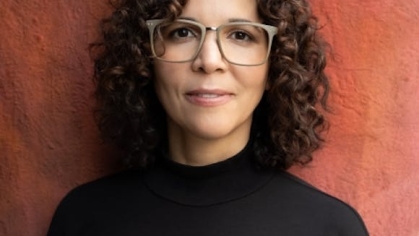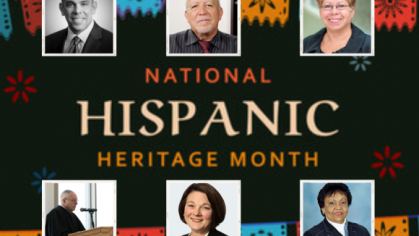Detainees from Abu Ghraib Prison May Get Day in Court, Thanks, in Part, to Rutgers Law School
A federal appeals court has reinstated a lawsuit filed by four former detainees of Iraq’s Abu Ghraib prison, and Rutgers Law School played a key role in reviving the case.
The plaintiffs’ lawyers, including Rutgers Law School Professor Jeena Shah – who oversees the International Human Rights Clinic – argued the case should be allowed to go forward. The former detainees say they were tortured in 2003 at the direction of a U.S. military contractor.
Shah, along with attorneys from the Center for Constitutional Rights and Patterson Belknap Webb & Tyler LP, argued before the 4th Circuit Court of Appeals in Richmond, Virginia, in May, after the suit was thrown out by a U.S. District Court judge. Students from the clinic helped draft the brief submitted to the appeals court, conducted research, and helped prepare the legal team for oral arguments.
“The ruling is significant because it discredits the Bush-era theories of torture by affirming that torture is illegal and no one – not even the President – can make it legal,” Shah said this week of the court victory. She has been working on the 2008 case since 2012 and got Rutgers students involved last fall.
“The students researched complex questions of law, drafted case summaries, prepared fact charts, and participated in moot court exercises, thinking of questions the judges would ask,” said Shah. The students were Mallory Kowalczyk ’16, Alexander Battey ’16, Thomas Holl ’16, Michael Sheflin ’17, Tareef Chamaa ’17, and Sami Jameel ’17.
The reinstatement means the case will go back to U.S. District Court. In June 2015, U.S. District Court Judge Gerald Bruce Lee dismissed the case saying the lawsuit raised a political question that was improper for the judiciary to decide, because it would require second-guessing military leaders in a war zone.
Lee has since recused himself from the case.
Details of the case Al Shimari v. CACI are outlined on the Center for Constitutional Rights website.
According to the suit, Detainees say they were “softened up” for interrogations through acts of torture, including being subject to severe beatings, sexual assault, and electric shocks, among other forms of mistreatment. They were never charged with any crimes. Some of the interrogators at the detention facility were supplied by CACI Premier Technology, Inc., an Arlington-based contractor.
“What our clients describe amounts to torture and war crimes under international law,” Shah said.
Shah said three Rutgers Law students accompanied her to Richmond, reviewed strategy the night before the Appellate Court appearance, sat through the arguments, and discussed the case afterwards.
“It did feel like we were part of something much bigger than ourselves,” said Jameel, who added he hopes to continue working on the case now that it’s been reinstated. “We learned so much.”
It was the fourth time the case has been before the court of appeals.
“There is no question that torture is unlawful under domestic, military, and international law. The only issue in this case is whether CACI will be held accountable – or treated with impunity – for its role in torture at Abu Ghraib,” Center for Constitutional Rights Legal Director Baher Azmy said in a prepared statement. “Today’s decision reaffirms the role of the courts to assess illegality, including torture, and we are optimistic this case will finally move forward and our clients will have their day in court.”
Al Shimari v. Premier Technology was filed in June 2008 under the Alien Tort Statute (ATS), which allows non-citizens to sue for human rights violations committed abroad. In 2014, the Fourth Circuit overturned a lower-court ruling that would have barred the Abu Ghraib survivors from accessing U.S. courts to sue U.S. corporations involved in torture. The Fourth Circuit reversed, determining that the case sufficiently “touch[es] and concern[s]” the United States “with sufficient force” to overcome the “presumption against extraterritorial application” of the ATS recognized by the Supreme Court in 2013.
Shereef Akeel & Valentine, P.C. in Troy, Michigan, are also co-counsel on the case.


